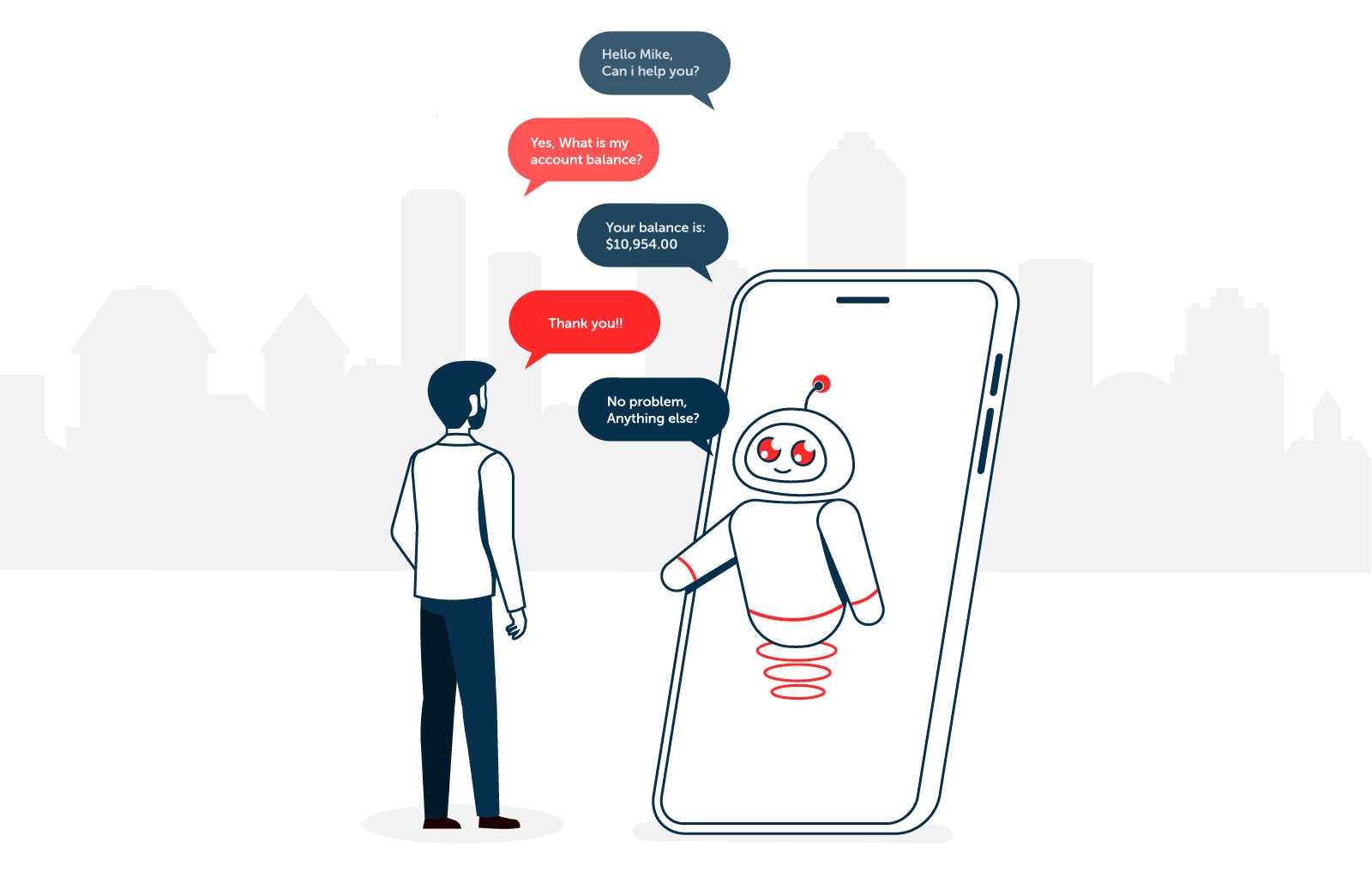Top 6 Non-Technical Jobs in Artificial Intelligence
AI is being employed across various industries, such as travel, education, finance, driving, architecture, arts, and entertainment, relying on non-technical ski
- by B2B Desk 2023-05-30 10:32:55
Robotics, AI, and machine learning all sound like very futuristic ideas, but they are a reality now. They describe computer programs that are capable of performing tasks traditionally done by humans. These tasks typically involve the fundamentals and foundations of a project. AI is employed to automate repetitive tasks, speech recognition, pattern recognition, workflow optimization, and research. By utilizing AI, these tasks can be significantly streamlined, allowing humans to tackle additional projects and more complex undertakings.
While the field of Artificial Intelligence is predominantly technical, there is also room for non-technical roles. The humanities and the arts play a significant part in the development and advancement of machine learning. For every technical role in AI, there are numerous non-technical positions supporting sales, product development, design, customer service, and other business functions.
AI is being employed across various industries, such as travel, education, finance, driving, architecture, arts, and entertainment, relying on non-technical skills to complement the technology. Hence, if you believe that learning coding and programming are the only ways to secure a job in AI, it's crucial to know that many other skills are in demand within this sector.
As a non-technical professional exploring opportunities in the machine learning industry, it is advisable to examine the fields impacted by AI and identify trending jobs within those domains.

One of the most significant fields in AI that does not require technical expertise is Data Analytics Translation. The role of a Data Analytics Translator is to "make sense" of the results generated by AI algorithms. While AI programs can identify patterns and scenarios in vast amounts of data, they struggle to draw conclusions from this information. This is where Analytics Translators add value by interpreting and deriving meaningful insights from patterns. While Analytics Translators don't necessarily require deep technical skills in coding or programming, they need to effectively communicate with technical staff. They serve as the bridge between technical roles in data modeling and the end-users of this data, such as product managers. Data Translators assist company management in translating these patterns into strategies that provide a competitive edge.
AI is making its mark in every industry, including the creative sectors. Wherever there is a need to comprehend extensive data and perform repetitive tasks, AI is making a significant impact. However, a broader perspective on Artificial Intelligence entails a multitude of skills, including marketing, creativity, communication, and strategy.

The role of Virtual Assistants and Chatbot Designers is growing rapidly, with many companies utilizing chatbots and virtual assistants for customer support and branding purposes. Industry giants like Apple and Wells Fargo are actively hiring game designers and writers to develop scripts for their virtual customer service support. In this role, conversation designers are responsible for designing the chatbot and scripting out the different paths a customer might take during a conversation. While deep technical knowledge is not required, effective communication, writing, and role-playing skills are vital for success in this field.

Writers can thrive in the expanding field of Artificial Intelligence as well. Many non-technical writers have become subject matter experts highly sought after by online and traditional publications. They contribute articles to magazines on AI-related topics, covering industry trends and applications. For individuals with programming skills in computer languages, technical writing roles are available to create manuals and instructional guides for specific software programs.

Will machines replace artists? Is art still genuine if it is produced by a machine? These are evolving questions regarding the use of AI in the visual arts. Machines are being utilized to generate art and animations, but human roles are still essential. In the fields of animation and visual arts, machines serve as tools to produce large volumes of work. Visual artists have the ability to infuse their creations with personal touches that machines cannot replicate. While there will be an audience for machine-generated art, there will also remain collectors of human-created art. AI is also used in animation tasks, but machines often struggle to convey the emotions and humor necessary for animation scripts. This is where human storytellers and writers excel by adding imagination and creativity to the work.

While machines are capable of performing language translations, human translators still play a crucial role. Many translation agencies utilize Artificial Intelligence to generate initial draft translations, which are then reviewed and refined by human editors. Various online platforms offer translation jobs that leverage AI in the workflow.

Artificial Intelligence drives the gaming industry, but there is a growing demand for writers and storytellers as well. Writing articles, opinions, and scripts for video games does not necessarily require technical skills, and these roles present exciting opportunities for non-technical professionals.
While the field of Artificial Intelligence is predominantly technical, there is also room for non-technical roles. The humanities and the arts play a significant part in the development and advancement of machine learning. For every technical role in AI, there are numerous non-technical positions supporting sales, product development, design, customer service, and other business functions.
As a non-technical professional exploring opportunities in the machine learning industry, it is advisable to examine the fields impacted by AI and identify trending jobs within those domains.
Let's delve into some of the top non-technical roles in Artificial Intelligence

Data Analytics Translator
One of the most significant fields in AI that does not require technical expertise is Data Analytics Translation. The role of a Data Analytics Translator is to "make sense" of the results generated by AI algorithms. While AI programs can identify patterns and scenarios in vast amounts of data, they struggle to draw conclusions from this information. This is where Analytics Translators add value by interpreting and deriving meaningful insights from patterns. While Analytics Translators don't necessarily require deep technical skills in coding or programming, they need to effectively communicate with technical staff. They serve as the bridge between technical roles in data modeling and the end-users of this data, such as product managers. Data Translators assist company management in translating these patterns into strategies that provide a competitive edge.
AI is making its mark in every industry, including the creative sectors. Wherever there is a need to comprehend extensive data and perform repetitive tasks, AI is making a significant impact. However, a broader perspective on Artificial Intelligence entails a multitude of skills, including marketing, creativity, communication, and strategy.

Virtual Assistants and Chatbot Designers
The role of Virtual Assistants and Chatbot Designers is growing rapidly, with many companies utilizing chatbots and virtual assistants for customer support and branding purposes. Industry giants like Apple and Wells Fargo are actively hiring game designers and writers to develop scripts for their virtual customer service support. In this role, conversation designers are responsible for designing the chatbot and scripting out the different paths a customer might take during a conversation. While deep technical knowledge is not required, effective communication, writing, and role-playing skills are vital for success in this field.

Artificial Intelligence Writers
Writers can thrive in the expanding field of Artificial Intelligence as well. Many non-technical writers have become subject matter experts highly sought after by online and traditional publications. They contribute articles to magazines on AI-related topics, covering industry trends and applications. For individuals with programming skills in computer languages, technical writing roles are available to create manuals and instructional guides for specific software programs.

The Arts
Will machines replace artists? Is art still genuine if it is produced by a machine? These are evolving questions regarding the use of AI in the visual arts. Machines are being utilized to generate art and animations, but human roles are still essential. In the fields of animation and visual arts, machines serve as tools to produce large volumes of work. Visual artists have the ability to infuse their creations with personal touches that machines cannot replicate. While there will be an audience for machine-generated art, there will also remain collectors of human-created art. AI is also used in animation tasks, but machines often struggle to convey the emotions and humor necessary for animation scripts. This is where human storytellers and writers excel by adding imagination and creativity to the work.

Language Translator
While machines are capable of performing language translations, human translators still play a crucial role. Many translation agencies utilize Artificial Intelligence to generate initial draft translations, which are then reviewed and refined by human editors. Various online platforms offer translation jobs that leverage AI in the workflow.

Game Writers
Artificial Intelligence drives the gaming industry, but there is a growing demand for writers and storytellers as well. Writing articles, opinions, and scripts for video games does not necessarily require technical skills, and these roles present exciting opportunities for non-technical professionals.
In an increasingly AI-powered world, the arts and humanities have a significant role to play. Candidates pursuing non-technical roles in Artificial Intelligence can stand out by combining their expertise in arts and humanities with new technologies. AI, machines, and robots may be displacing jobs that involve repetitive tasks and data collection. Therefore, it is essential to stay informed about AI trends and understand how they impact the industry. However, not every job in this field requires technical skills, and if you're seeking non-technical work, there are plenty of in-demand roles available.
The field of Artificial Intelligence offers a wide array of non-technical job opportunities. From Data Analytics Translators to Virtual Assistants and Chatbot Designers, Artificial Intelligence Writers, and professionals in diverse fields like Amazon Alexa, the arts, language translation, and game writing, there is ample room for non-technical expertise in this rapidly evolving industry. By combining non-technical skills with a solid understanding of AI trends, individuals can position themselves for successful careers in Artificial Intelligence.
Also Read: Job roles created by AI, ChatGPT can pay salary of Rs. 2 cr a year
Also Read: Job roles created by AI, ChatGPT can pay salary of Rs. 2 cr a year
POPULAR POSTS
The Agentic Revolution: Why Salesforce Is Betting Its Future on AI Agents
by Shan, 2025-11-05 10:29:23
OpenAI Offers ChatGPT Go Free in India: What’s Behind This Big AI Giveaway?
by Shan, 2025-10-28 12:19:11
Zoho Products: Complete List, Launch Years, and What Each One Does
by Shan, 2025-10-13 12:11:43
Arattai vs WhatsApp: Which Messaging App Should You Choose in 2025?
by Shan, 2025-10-10 11:55:06
Top Buy Now Pay Later (BNPL) Apps for Easy Shopping in 2025
by Shan, 2025-09-22 10:56:23
iPhone 17 Sale in India Begins: Full Price List, Launch Offers and Store Availability
by Shan, 2025-09-19 12:00:45
Apple September 2025 Event Recap: iPhone 17, iPhone Air, Apple Watch Series 11, and India Pricing Revealed
by Shan, 2025-09-10 09:55:45
RECENTLY PUBLISHED

Loan EMIs to Drop as RBI Slashes Repo Rate - Full MPC December 2025 Highlights
- by Shan, 2025-12-05 11:49:44

Pine Labs IPO 2025: Listing Date, Grey Market Premium, and Expert Outlook
- by Shan, 2025-11-05 09:57:07

Top 10 Insurance Companies in India 2026: Life, Health, and General Insurance Leaders Explained
- by Shan, 2025-10-30 10:06:42

Best Silver Investment Platforms for 2025: From CFDs to Digital Vaults Explained
- by Shan, 2025-10-23 12:22:46

Zoho Mail vs Gmail (2025): Which Email Platform Is Best for Businesses, Startups, and Students?
- by Shan, 2025-10-09 12:17:26

PM Modi Launches GST Bachat Utsav: Lower Taxes, More Savings for Every Indian Household
- by Shan, 2025-09-24 12:20:59




 Subscribe now
Subscribe now 